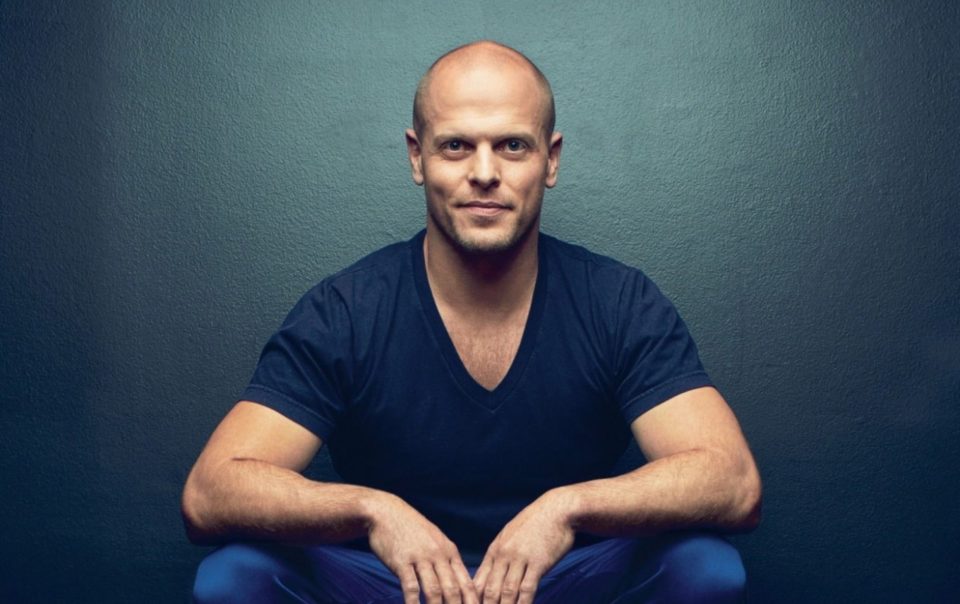
The secret of learning a new language – เคล็ดลับเรียนรู้และพูดได้ทุกภาษาของ Lýdia Machová เธอได้พิสูจน์แล้วว่า การเรียนภาษาใหม่ๆ เป็นเรื่องไม่ยากอีกต่อไป
ทุกวันนี้คนส่วนใหญ่มีความเชื่อที่ผิดๆ ว่าการเก่งภาษาเป็นเรื่องมาจากพรสวรรค์ หรือความสามารถพิเศษ ทั้งๆ ที่ภาษาเป็นแค่เพียงความสามารถที่ไม่ว่าใครก็สามารถมีกันได้ ฝึกกันได้ เหมือนกับกีฬาหรือเกมชนิดหนึ่ง ความสำเร็จของเรื่องภาษาขึ้นอยู่กับว่า เราจะมีความสุขกับมันมากแค่ไหน เราจะพยายาม อดทน และฝึกฝนมันบ่อยแค่ไหนด้วย
นอกจากนี้ในปัจจุบัน ภาษาได้กลายเป็นหนึ่งในคุณสมบัติที่เป็นที่ต้องการในโลกของการเรียนและการทำงาน ด้วยจากค่านิยมที่ว่าภาษาคือความสามารถพิเศษ ทำให้หลายๆ องค์กร อย่างน้อยเขาก็ต้องอยากได้คนที่พูดภาษาอังกฤษซึ่งเป็นภาษาสากลได้เป็นพนักงานของบริษัท หรือ ไม่องค์กรบางแห่งก็อาจจะต้องอยากได้คนที่พูดภาษาที่สามได้มาร่วมงาน นั่นจึงเป็นสาเหตุที่ว่าคนที่มีความสามารถด้านภาษาจึงที่เป็นที่ต้องการ และถ้าหากเรามีทักษะด้านภาษาเอาไว้ในมือ เราก็จะกลายเป็นคนที่หลายองค์กรต้องการได้เช่นกัน
“ไม่รู้สิ ฉันก็แค่ชอบเรียนภาษา”

Lýdia Machová สารภาพว่าเธอตกหลุมรักการเรียนภาษา ตอนนี้เธอเป็นที่ปรึกษาด้านการเรียนภาษา และเธอยังเรียนภาษาใหม่เพิ่มทุกๆ สองปี แน่นอนว่าคนมากมายคงมองเธอว่าเป็นอัจฉริยะ และเมื่อพวกเขาต้องการเป็นแบบเธอ พวกเขาก็จะเข้ามาเพื่อถามหาเคล็ดลับในการเรียนภาษา แต่เธอกลับให้คำตอบกับพวกเขาไม่ได้เลย เพราะเธอเองก็ไม่รู้เหมือนกันว่าอะไรคือเคล็ดลับ แต่เธอตอบได้สั้นๆ ว่า “เธอแค่รักมันแค่นั้นเอง”
“คนพูดได้หลายภาษา เขาทำอะไรกันและเขามีอะไรที่เหมือนกัน?”
Lýdia เล่าว่า พอมีคนถามเธอเยอะเข้ามันก็ทำให้เธอสงสัยเหมือนกัน ว่าทำไมบางคนถึงสามารถพูดได้หลายภาษา แล้วทำไมคนอื่นมองว่าพวกเขาวิเศษนัก คนที่พูดได้หลายภาษาเขาเรียนภาษาอย่างไร? แตกต่างจากคนอื่นๆ ที่ล้มเหลวในการเรียนภาษาอย่างไร? และคนที่เขาพูดได้หลายภาษา เขามีอะไรที่เหมือนกัน? ด้วยความสงสัยเหล่านี้ทำให้เธอตกลงเข้าร่วมงานที่คนหลงใหลภาษาจะมารวมตัวกัน เพื่อพูดคุยและแลกเปลี่ยนภาษากันและกัน ซึ่งมีจัดอยู่ทั่วโลก
“เรียนรู้ด้วยการสร้างผลลัพธ์ ถึงแม้ว่าจะผิดพลาดก็ตาม แต่จงสนุกไปกับมัน”
หนึ่งในคนที่เธอได้พูดคุยด้วยก็คือ Benny จากไอร์แลนด์ เขาเล่าให้เธอฟังเกี่ยวกับการเรียนรู้ภาษาของเขาว่าเขามักจะเริ่มจากการศึกษาบทสนทนาเล็กๆ น้อยๆ ผ่านหนังสือสอนภาษาท่องเที่ยว และเข้าไปคุยกับเจ้าของภาษาเลย โดยที่เขาไม่สนใจว่าจะพูดผิดหรือถูก เพราะเขาเรียนรู้จากความผิดพลาดเหล่านั้น และด้วยเทคโนโลยีทุกวันนี้ เขาไม่จำเป็นต้องเดินทางไปตามประเทศต่างๆ ด้วยซ้ำ มีเว็บไซต์มากมายที่ทำให้เราได้คุยกับคนทั่วโลกแม้เราจะนั่งเล่นอยู่ในห้องนอนหรือห้องครัวที่บ้าน
“เรียนรู้จากการให้คนแปลกหน้าสองคนนั่งคุยกัน โดยที่พวกเขาไม่รู้ตัวด้วยซ้ำว่าคุยกันอยู่”
นอกจาก Benny แล้ว เธอยังได้พบกับ Lucas จากบราซิล เป็นคนที่มีวิธีการเรียนภาษาที่ร้ายกาจและสร้างสรรค์มากอย่างที่คนทั่วไปต้องคิดไม่ถึงแน่ๆ Lucas สุ่มเพิ่มเพื่อนใน Skype เขาเปิดแชทของคนสองคนขึ้นมา โดยแชทแรกเขาเป็นคนเริ่มบทสนทนา และแชทที่สองให้อีกฝ่ายเป็นคนเริ่มบทสนทนา หลังจากนั้นสิ่งที่เขาทำก็คือการคัดลอกคำตอบของคนที่หนึ่งส่งให้คนที่สอง คัดลอกคำถามคนที่สองส่งให้คนที่หนึ่ง แล้วเรียนรู้บทสนทนาจากการคุยกันของทั้งสองคน ซึ่งพวกเขาไม่รู้ตัวด้วยซ้ำว่าคุยกันอยู่
“ทุกคนมีวิธีเฉพาะของตัวเองในการเรียนภาษา”
จากคนเก่งภาษาทั่วโลกที่มารวมตัวกัน เธอพบว่าพวกเขาต่างก็มีวิธีในการเรียนรู้ในแบบฉบับของตัวเองในการเรียนภาษาให้ประสบความสำเร็จ ซึ่งบางคนก็มีวิธีที่เหมือนกัน อย่างเช่น หลายคนเริ่มการเรียนภาษาจากการเลียนเสียงของภาษาที่ตั้งใจจะเรียน จดคำศัพท์ที่ใช้บ่อย 500 คำของภาษานั้นๆ หรือ อ่านและทำความเข้าใจไวยากรณ์ของภาษาที่เรียนก่อนเป็นอย่างแรก เป็นต้น
“หนึ่งอย่างที่ทุกคนเหมือนกันคือ ทุกคนสนุกกับการเรียนภาษา”
ถ้าให้หาความเหมือนในเรื่องของวิธีการเรียนภาษาคงเป็นไปไม่ได้ เพราะทุกคนมีวิธีการเรียนภาษาให้ประสบความสำเร็จด้วยวิธีของตัวเอง แต่ในตอนที่ทุกคนเล่าถึงกระบวนการเรียนรู้ภาษาของพวกเขา สิ่งที่เห็นได้อย่างชัดเจนเลยก็คือ ทุกคนมีความสุข สนุก และเต็มใจที่จะเรียนรู้ภาษาเป็นชีวิตประจำวัน พวกเขาไม่ได้โดนบังคับ หรือทำเพื่อหวังจะเป็นอัจฉริยะให้คนอื่นยกย่อง แต่พวกเขาทำก็เพราะมันสนุกนั่นเอง
“ใครจะอยากอ่านหนังสือน่าเบื่อ ที่สอนบทสนทนาการถามทางบนรถไฟกันล่ะ ใช่ไหม?”
ด้วยวิธีที่ต่างกันไปในการเรียนภาษาบางคนเลือกที่จะทำแผนผังไวยากรณ์หลากสี การ์ดช่วยจำคำศัพท์ หรือการเรียนคำศัพท์ผ่านแอปพลิเคชันในโทรศัพท์ Lýdia เองก็เป็นอีกหนึ่งคนที่หาวิธีเรียนรู้ภาษาที่ตัวเธอเองจะสนุกกับมันมากที่สุด เธอเล่าว่าในตอนที่เธอเรียนภาษาสเปน มันน่าเบื่อมากกับการอ่านหนังสือบทสนทนาถามตอบ หนังสือที่เธอชอบอ่านมากที่สุดคือ แฮรี่ พอตเตอร์ เธอรู้ว่ามันจะทำให้เธอสนุกได้ไม่ว่าจะอ่านมันกี่ครั้ง เธอจึงเลือกที่จะอ่านหนังสือแฮรี่ พอตเตอร์ แต่เป็นเล่มที่แปลเป็นภาษาสเปน แล้วอ่านมันจนครบทุกเล่ม แม้ระหว่างทางจะมีคำศัพท์สเปนมากมายที่เธอแปลไม่ออก และทำให้ยากที่จะเข้าใจเนื้อหาไปบ้าง แต่เพราะมันคือ แฮรี่ พอตเตอร์ ไม่ว่าอย่างไรเธอก็ยังมีความสุขไปกับมันอยู่ดี
“การหาความสุขในกระบวนการเรียนภาษาเป็นเรื่องสำคัญมาก”
การเรียนภาษาใหม่เกิดขึ้นอีกครั้ง เธอตัดสินใจเรียนภาษาเยอรมันเพิ่ม และใช้ซีรีย์ซีรีส์ตลกคอมเมดี้ที่เธอชอบอย่างเรื่อง “Friends” เป็นเครื่องมือในการเรียน เธอดูมันในภาษาเยอรมัน แม้ว่าตอนแรกเธอจะไม่เข้าใจมัน แต่เธอยังดูมันต่อไป เพราะมันสนุกมากและมันคือซีรีย์เรื่องโปรดของเธอ หลังจากจบซีซันที่ 2 และ 3 เธอเริ่มเข้าใจบทสนทนาในภาษาเยอรมัน และเธอก็ได้สนุกกับซีรีย์เรื่องนี้มากจริงๆ
“เราอาจจะไม่ใช่อัจฉริยะ แต่เราก็สามารถเจอวิธีการเรียนรู้ภาษาให้สนุกได้”
คนที่พูดได้หลายภาษาทุกคนไม่ใช่อัจฉริยะ ไม่ได้มีทางลัดในการเรียนภาษา หรือไม่ได้มีเทคนิคอะไรที่พิเศษไปกว่าคนอื่น แต่พวกเขาแค่ค้นพบทางที่พวกเขาจะเรียนรู้ภาษาและสนุกไปกับมัน พวกเขาเรียนรู้มันเพราะสนุก ไม่ได้ใช่เพราะจำเป็นหรือโดนใครบังคับ พวกเขาเปลี่ยนการเรียนภาษาในห้องเรียนที่แสนน่าเบื่อ ให้กลายเป็นกิจวัตรประจำที่น่าพอใจ และยินดีในการจะทำมันในทุกๆ วัน
“ข่าวดีก็คือ เรื่องนี้มันเกิดขึ้นกับใครก็ได้ที่เต็มใจจะเรียนรู้ภาษา”
เรื่องแบบนี้มันเกิดขึ้นกับใครก็ได้ เพียงแค่เราต้องหาทางของตัวเองให้เจอ ถ้าเราไม่ชอบจดสิ่งต่างๆ ลงบนกระดาษ เราก็ลองจดมันลงแอปพลิเคชั่นสักแอป ถ้าเราเบื่อที่จะฟังสื่อการเรียนการสอนในหนังสือ ก็ลองหา YouTube หรือ Podcast ในภาษาที่เรากำลังเรียนรู้อยู่ฟังก็ได้ หรือ ถ้าเราเป็นคนที่มีโลกส่วนตัวสูง และไม่ชอบเข้าสังคม เราก็สามารถหัดได้จากการพูดกับตัวเอง อยู่ในห้อง และพูดคนเดียว เป็นทั้งคนถามและคนตอบให้กับตัวเอง มีตัวอย่างและมีหนทางมากให้ทุกคนมีความสุขกับการเรียนรู้ในเรื่องของภาษา เพียงแต่ว่าเราต้องหามันให้เจอ
หลักการ 3 ข้อ ของ The secret of learning a new language
ถ้าเราอยากพูดภาษาอังกฤษได้อย่างคล่องแคล่ว เราจะพึ่งพาความสนุกอย่างเดียวไม่ได้ แต่เรายังต้องพึ่งหลักการเพิ่มเติมอีก 3 ข้อด้วย ดังต่อไปนี้
1. วิธีการที่มีประสิทธิภาพ: วิธีการที่เราเลือกนอกจากเราจะสนุกไปกับมันแล้ว มันยังต้องมีประสิทธิภาพในการช่วยเราเรียนรู้ในระยะยาวได้ด้วย ยกตัวอย่างเช่น การจำคำศัพท์ ต้องไม่ใช่การจำคำศัพท์เพียงเพื่อสอบในวันต่อไป แต่เป็นการจำคำศัพท์เพื่อใช้ในชีวิตประจำวันไปเรื่อยๆ เราอาจจะลองหาวิธีการ หรือแรงบันดาลใจที่เราชอบได้จากคนเก่งภาษาคนอื่นใน YouTube หรือ Podcast หรือ ตามเว็บไซต์ต่างๆ ก็ได้ เพราะ ถ้ามันเป็นวิธีการที่ได้ผลกับพวกเขา มันก็อาจจะได้ผลกับเราด้วยก็ได้
2. จัดรูปแบบการเรียนของตัวเอง: เราชอบใช้ข้ออ้างเป็นประจำว่า ในชีวิตประจำวันของเรานั้นยุ่งเกินกว่าที่จะทำอะไรเพิ่ม แต่ถ้าเราลองจัดระเบียบสิ่งที่ต้องทำในแต่ละวันสักนิด เราอาจจะมีเวลาเหลือเพียงพอสำหรับการเรียนภาษาเพิ่มเติมก็ได้ เช่น การตื่นเช้าให้เร็วขึ้นเพื่อมาเรียนภาษา หรือ การฟัง Podcast ระหว่างขับรถไปทำงาน หรือ การหัดทำอาหารจากสูตรที่เป็นภาษาที่ตัวเองกำลังเรียนอยู่ เป็นต้น ดังนั้นการมีแผนการเรียน จึงเป็นสิ่งสำคัญในการเรียนรู้
3. มีความอดทน: การเรียนภาษาไม่ใช่เรื่องที่จะทำได้สำเร็จภายในวันสองวัน ไม่ใช่ว่าเราจะพยายามเป็นอย่างมากในวันที่หนึ่ง แล้ววันที่สองเราจะสามารถพูดได้อย่างคล่องแคล่วเลย เรื่องของภาษาทำให้เราต้องมีความอดทนในการพยายามเรียนรู้มันไปในทุกวัน เมื่อเวลาผ่านไประยะหนึ่ง แม้เราจะยังไม่สามารถพูดได้อย่างคล่องแคล่ว แต่เราจะค้นพบว่าตัวเองมีพัฒนาการดีขึ้นอย่างแน่นอน และนั่นแหละคือรางวัลของความอดทน
“ไม่มีอะไรกระตุ้นเราได้ดีไปกว่าความสำเร็จของตัวเราเอง”
Lýdia เล่าว่า ความรู้สึกถูกกระตุ้นจากความสำเร็จเล็กๆ ที่ทำได้ในแต่ละวันเป็นสิ่งที่เธอชอบที่สุด มันเป็นความรู้สึกที่สุดยอด เมื่อคุณค้นพบว่าตัวเองเริ่มเข้าใจภาษาที่กำลังเรียนทีละนิด ในวันที่เธอเข้าใจมุกตลกจากซีรีย์เรื่อง “Friends” ที่เธอดูเป็นภาษาเยอรมัน มันรู้สึกดีมาก และนั้นทำให้เธอเรียนภาษาใหม่ทุกๆสองปี
“บางคนอาจจะคิดว่าทั้งหมดนี้ฟังดูดีนะ แต่มันเพราะพรสวรรค์ด้วย”
ความจริงก็คือ การเป็นคนที่พูดได้หลายภาษาไม่ได้หมายถึงว่าเราคือคนที่มีพรสวรรค์ ดูจากตัวอย่างดังต่อไปนี้ Benny เขาเรียนภาษาไอริชมา 11 ปี และภาษาเยอรมันอีก 5 ปี แต่เขาเรียนจบมาโดยที่พูดไม่ได้เลยสักนิด จนกระทั่งอายุ 21 ปี เขาตามหาวิธีการเรียนภาษาของเขาเอง ตอนนี้เขาสามารถพูดได้ 10 ภาษาได้อย่างง่ายดาย หรือ จะเป็นเรื่องของ Lucas เขาเรียนภาษาอังกฤษในโรงเรียนมากว่า 10 ปี ครูเคยบอกว่าเขาเป็นนักเรียนที่แย่ที่สุด เพื่อนก็แกล้งเขาโดยการซื้อหนังสือภาษารัสเซียมาให้เขา เพื่อล้อเลียนว่าเขาไม่มีทางพูดรัสเซียได้แน่ แต่หลังจากที่เขาใช้วิธีการคุยกับคนแปลกหน้าใน Skype ตลอด 10 ปี ตอนนี้เขาพูดได้ 11 ภาษาอย่างคล่องแคล่ว
“ถ้าคุณเรียกมันว่าปาฏิหาริย์ งั้นฉันก็ได้เห็นปาฏิหาริย์อยู่ทุกวันเลย”
Lýdia ทำอาชีพเป็นที่ปรึกษาด้านการเรียนภาษาให้กับผู้คนมากมาย เธอไม่ได้สอนภาษา แต่เธอช่วยให้คนได้ค้นพบการเรียนภาษาที่สนุกและได้ผลสำหรับพวกเขา ทางที่สนุก มีประสิทธิภาพ อย่างมีแบบแผน และต้องอาศัยความอดทน มันคือทางที่จะทำให้ทุกคนประสบความสำเร็จในการเรียนภาษาอะไรก็ตามที่เองต้องการ
บทสรุป
อย่าให้ภาษาเป็นเพียงความสามารถพิเศษที่จะมีได้ก็ต่อเมื่อต้องมีพรสวรรค์ หรือ ภาษาเป็นบทเรียนน่าเบื่อที่เราจำเป็นต้องเรียนในห้องเรียน เมื่อเรารู้สึกเบื่อหน่ายกับการเรียนภาษา ให้เราลองหาวิธีการเรียนภาษาที่จะทำให้เรารู้สึกสนุกไปกับมัน รู้สึกเหมือนกับตอนที่เรากำลังเล่นเกม ฟังเพลง หรือ ดูหนัง มีความสุขที่ได้เรียนรู้ไปกับภาษา และยินดีที่จะเอาภาษามาเป็นส่วนหนึ่งในชีวิตประจำวัน หากเราสามารถทำได้ตามวิธีการเหล่านี้ การเรียนรู้ภาษามันจะมีประโยชน์ต่อเราและอนาคตของเราได้อย่างแน่นอน
“บางที ในตอนนี้เราอาจจะพบหนทางที่จะทำให้เรามีพรสวรรค์ทางภาษา ทั้งๆ ที่เราไม่เคยมีมาทั้งชีวิตแล้วก็ได้”
The secrets of learning a new language | Lýdia Machová







